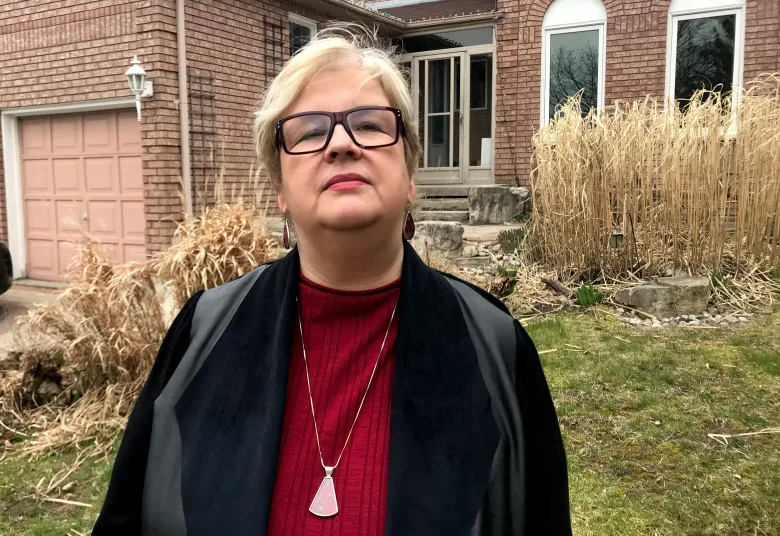The way in which COVID-19 has affected long-term care homes reflects how they have responded to the pandemic and the impact of early actions, say advocates for residents and leaders of the unions representing workers at the homes.

At one seniors home in the west end of Toronto, more than half the residents have tested positive for COVID-19, along with 66 staff members. Another 39 residents at Eatonville Care Centre have died of the virus.
But at another home, just seven kilometres down the road in Etobicoke, it has been a very different experience. So far, there have been no cases of the virus — and no deaths — at Ivan Franko Home.
For advocates of long-term care residents and leaders of the unions representing workers at the homes, the different realities reflect different early and ongoing responses to the pandemic.
Jane Meadus, a Toronto lawyer with the Advocacy Centre for the Elderly, says care homes were not doomed to experience a COVID-19 outbreak and some administrators could have done more to protect their residents and staff.
“I don’t think it had to be this bad.”

For Meadus, “this bad” means the number of deaths experienced in Ontario’s long-term care homes since COVID-19 hit Canada. As of April 27, provincial data showed there have been 705 deaths and 2,491 residents with confirmed active cases of the virus. An additional 1,205 staff members have tested positive.
Eatonville is one of five care homes in the province to receive military support to help fight the virus. Its parent company, Responsive Group Inc., was also named in a court injunction granted after a request from the Ontario Nurses Association, which accused it of failing to adequately protect their staff from the novel coronavirus. On April 23, Ontario’s Superior Court of Justice granted the injunction, ordering the homes to comply with provincial infection control and health standards.
Some care homes could have taken early steps to help protect their residents and staff from outbreaks, said Meadus.
Proper use of personal protective equipment (PPE) like masks and gloves, along with separating residents who were infected from those who weren’t, could have helped homes avoid large outbreaks, she said.
Provincial data shows that at least 188 long-term care homes in Ontario have experienced a COVID-19 outbreak.
Meadus considers that number “much too high.”
WATCH | Why quick action may have prevented an outbreak:
While many long-term care facilities have had widespread outbreaks, the Ivan Franko care home in Toronto has not had any cases of COVID-19 thanks to quickly implementing its pandemic plan. 2:01
These homes should have learned from other parts of the world where COVID-19 hit sooner than it did in Canada, she said.
“Long-term care homes here should have been put into a position where they were much better prepared and obviously that didn’t happen.”
What can go right?
But some homes implemented measures that appear to have kept COVID-19 out. Provincial data shows about 70 per cent of Ontario’s long-term care homes have not experienced an outbreak.
At Ivan Franko Home, the management team implemented a comprehensive pandemic plan before the Ontario government declared a provincewide state of emergency.
“There’s been talk of pandemics for years, so we had a complete emergency plan and pandemic plan in place, which we decided to implement as of March 16,” said Terry Tonkovich, executive director of Ivan Franko Homes.
WATCH | A family member talks about her gratitude:
Family member Christine Witowych shares her gratitude at how her mother’s home acted to prevent a COVID-19 outbreak. 0:48
Ontario Premier Doug Ford declared a state of emergency the following day.
Since then, Tonkovich said, the home has required staff to only work at one facility — either Ivan Franko or another one, but not both. For part-time staff who normally worked in multiple homes but chose to work permanently at Ivan Franko, Tonkovich said she and her team increased their hours to full time.
The home took that measure more than a month before Ford said it would be mandatory in Ontario that staff only work in one home, an announcement that came on April 15 and took effect April 22.
Every long-term care home must also have an infection prevention and control program that includes guidelines for detecting infections and actions to prevent transmission, but the implementation of those protocols is up to each individual home, said Meadus.
The building that houses Ivan Franko Home is 50 years old, with mostly shared bedrooms and communal washrooms. Tonkovich said that’s one of the reasons why she and her staff knew they’d have to take early and rigorous precautions to ensure shared facilities stayed clean.


